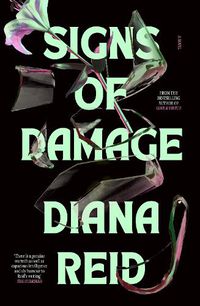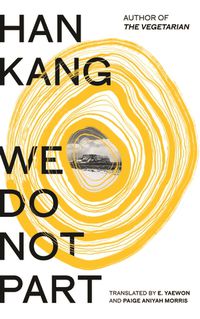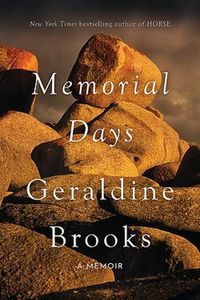It’s common in our shops to be asked: is this a ‘girls’ book or a ‘boys’ book? We invited our children’s books specialists to share their experiences and ideas about the role of gender in recommending books to kids.
‘One of the greatest pleasures in children’s bookselling is the chance to give personalised recommendations to young readers (or their adults). Discussing reading preferences directly with kids and finding out exactly why they like a particular book or author is always the highlight of my workday. Was it the characters? The language? The plot? A favourite book tells me a lot about the reader, in particular what reading level they’re at, and what genres they like. I also like to find out what reading mood they’re in: do they want something thoughtful, funny, challenging, undemanding, whimsical or thrilling? There’s nothing quite like the challenge of recommending books for a young kid who is exclusively into dolls and hotels. (My recommendations were, if you’re interested, Nevermoor, the Eloise books and Miss Happiness and Miss Flower.)
Many times of course, I’m talking to parents, grandparents, aunts, uncles, cousins or friends who are keen to find the right book for a young person. If they don’t know the child well, I might only get their age. The one thing I never ask for though is the child’s gender. I’d much rather know age, reading level and interests or hobbies. I’ve also met plenty of kids in the bookshop whose reading preferences, openness to suggestions or surety about their own gender identity might surprise adults. That reader I mentioned earlier who was obsessed with dolls and hotels? A boy.
Similarly when I’m talking about a book and its characters, I use neutral they/their language. The reason I do this is that many adults seem overly invested in the gender of the author and the characters, and use that as their sole reason to knock back a book. To be more specific, adults seem to think that boys won’t read about female characters (and sometimes vice versa, but significantly less often).
Naturally, there are youngsters out there who do prefer to read books written by, or featuring characters of their own gender, including books about transgender characters, such as George and Introducing Teddy. My main aim is to get kids reading with enjoyment and keep them reading, so I take their preferences seriously.’
– Leanne
‘I spend nearly every day of my week talking to kids about what kind of books they like to read and I will absolutely never hesitate to recommend a book with a girl on the cover to a boy. If a 10-year-old boy loves sea adventures and recently read Race to the End of the World by A.L. Tait, I would comfortably suggest Lintang and the Pirate Queen, knowing the kid is going to listen to the description of the book and immediately see it’s just as exciting as the book he’d just finished reading. For such a long time young girls have read and enjoyed books told from the perspective of a male protagonist. Why are we not encouraging these boys to also use this advantage and read books told from a female protagonist’s perspective?
I am constantly surprised by how often adults are reluctant to buy books for boys with girl protagonists. There is an excellent post-apocalyptic graphic novel called The Girl Who Owned a City by Trina Robbins. It has a really high success rate for reluctant readers of all genders and I sometimes have a hard time not reacting when adults immediately brush it off as a 'girls book’ because it has a girl on the cover. Occasionally I have pointed out that it has a person on the cover.
I recommended Roller Girl to a 9-year-old boy last year, but he decided against it. His mum suggested it was because it had a girl in it and before I could say anything, her son, in a somewhat offended tone, denied the charges, and said that Roller Girl just didn’t seem like his thing. He picked Ghosts and Sisters instead.‘
– Dani
'I ask for age, gender, sporting likes or dislikes, favourite book they recently read, favourite subjects at school, what they like doing on the weekend, and approximate reading ability – all these things factor in to what sort of book I’d recommend.
I am interested in recommending whatever I think is best going to captivate each particular individual and keep them reading. However, my experience is that gender is an influence in the majority of cases. It seems to me that the things that will appeal to young girls, are often not the things that will appeal to young boys and vice versa. Of course, there are some books that are gender neutral (for example Choose Your Own Adventure stories, The One and Only Ivan, a number of Kate DiCamillo’s novels, or – at an older level – the Cherub series), and of course, some kids aren’t interested in traditional boy or girl stereotypes, but as an overwhelming rule of thumb, I think interests fall along gender lines.
I have a technique of piling them up with a range of books that I think they’ll like, then leaving them to sit and read the back, and pick a couple of pages to sample, then choose from the pile the ones that appeal. So while I’ve narrowed it down for them, they still have the ultimate say.’
– Gabrielle
‘One thing I’ve noticed is that girls and young women definitely have a much easier time 'boundary crossing’ and reading books with male protagonists or masculined narratives. You rarely hear parents question their daughters’ choices, but you do with some regularity hear parents question and challenge their sons if they even so much as look at a ‘girls book’. This always makes me a bit sad, and it’s antithetical to my belief that literature should be a safe space for children to experience, question, and challenge those very binaries themselves.
But on the other hand, and if I am being perfectly honest, it is often the first question I ask customers who ask for a recommendation when the child is not present. I catch myself out all the time: if the gender of the child reader in question doesn’t matter, then I myself have a lot of work to do to unlearn this. I do not believe there is anything wrong with reading a gendered narrative within your own experience per se, but it is more the policing of and constant reference to the reader’s own gender that I find really disappointing.
Something small that I try and do daily in interactions at the shop, is broaden the scope of the conversation to include not only the gender of the character, but their race, indigeneity, sexuality, class, ability, etc.‘
– Kushla
'I think it’s fine if children are making that choice, because that’s what they like to read and reading should be pleasurable, but not if adults are making the choice for them. You really want something the child is going to love reading so that reading is fun and not a chore!
My most asked questions to customers (when the books are for their own children) isn’t the gender but rather what their children read last so I can get a handle on their reading, their children’s favourite books, whether they’re strong readers, are they visual readers (do they prefer a lot of illustrative material), do they read fantasy etc.
My son was a strong voracious reader and never made any differentiation between perceived 'girlie’ books and ‘boysie’ books. He loved books about trucks and cars and AND loved books with pink covers! He read everything he could get his hands on.
I do want to throw in my observations about teachers who come in to make a selection for a ‘read aloud’ for a class of boys and girls in primary schools. I’m thrilled to say that I’m never told that something I recommend is ‘too girlie’ or ‘too boysie’. Teachers want a terrific book that will hold the children’s attention and spark lots of discussion.
I also had a very interesting experience last year at a local catholic private boys’ secondary school. I was briefed to present books with protagonists from diverse backgrounds and genders, as one of the observations about the set books in the past was that they were usually ‘straight, white boy centric’ and didn’t reflect a diverse world or experiences. The teachers’ views were: How will boys develop any empathy or understanding of other genders/cultures if their reading experience limits them as well?‘
– Athina





